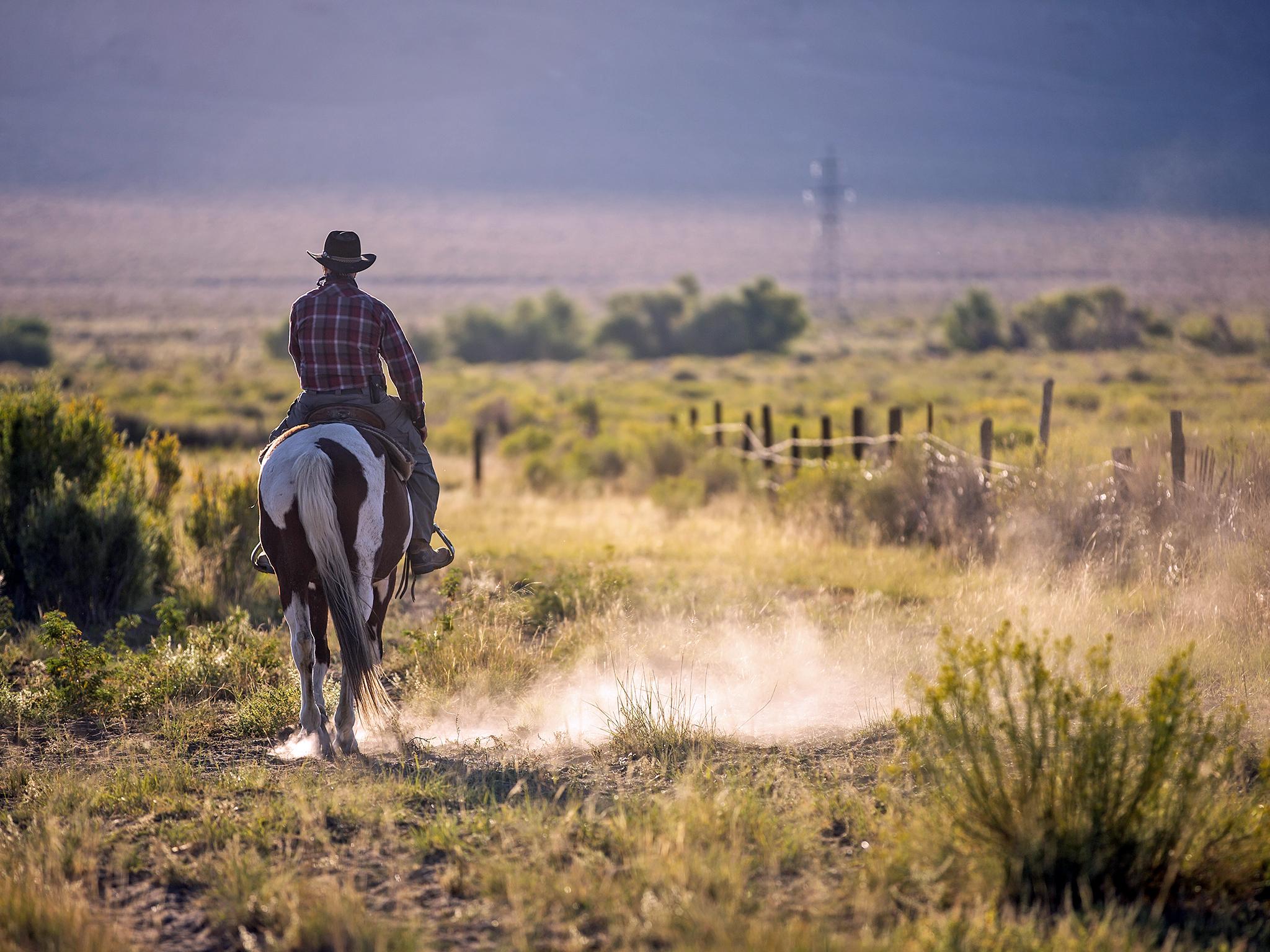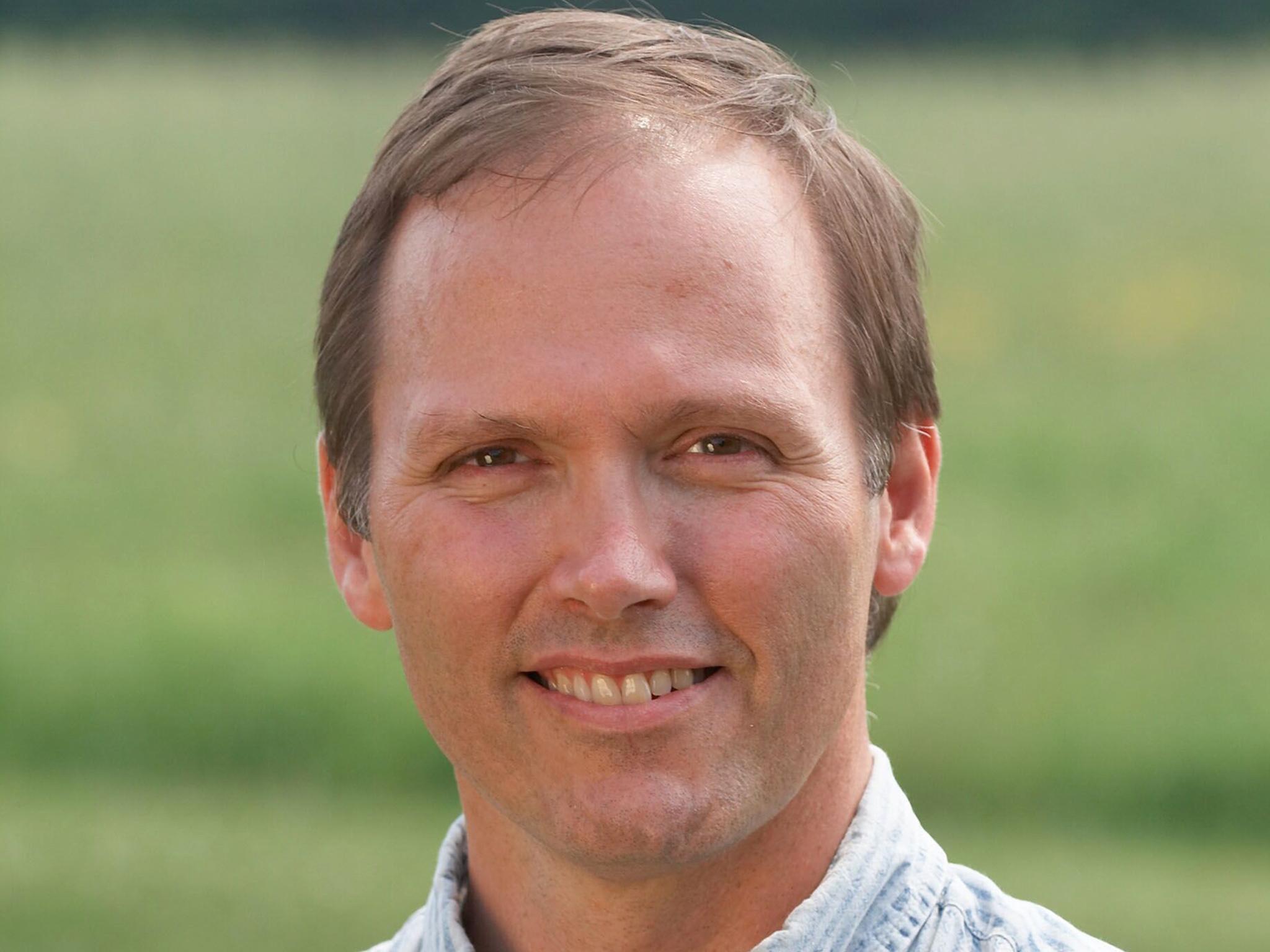How a heart attack turned a fifth generation cattle farmer into a vegan activist
A heart attack as a teenager changed Brown's view on food

As a fifth-generation cattle farmer, you might argue that Harold Brown is the last person you would imagine to become a devout vegan activist, but he’d disagree. If anything, castrating cattle and suffering a heart attack from eating too much meat and dairy as a teenager only made the decision easier.
In the past year, veganismin the Western world has spiked popularity as people are taken by the health benefits and arguably cruelty-free existence the lifestyle promotes. In 2015, the UK saw a 360 per cent spike in veganism. This year, a study by Oxford University suggested that millions of lives could be saved annually by 2050 if people adopted vegan diets. But veganism can be culturally tough when food is key to socialising, and you are surrounded by meat – as the 60-year-old from Michigan knows all too well.
The small family farm that Brown grew up on raised Black Angus cattle, a few rabbits, a handful of dairy goats, and a couple of cows and pigs, Brown recalls to The Independent.

“When one is born into animal agriculture there is an indoctrination that begins from the beginning. For me it began with being taught by my family that animals were here for our use. They were things of utility, of commerce.”
These messages were further reinforced by the church he added, and of course, pop-culture.
“I noticed that at every commercial break there was a least one advertisement that was selling one or more animal products. It seemed obvious that we were doing good work feeding a hungry world.”
But Brown’s belief-system was shaken to its core when he suffered a massive heart attack aged 18.
“I was home alone taking care of the farm. I didn’t know the symptoms of a heart attack and once the blinding pain left me and I could breathe again I picked myself up off the floor and went about my business. I believe at 18 we all think we are bullet proof."
Years later while working at a dairy processing plant, Brown was injured and a doctor discovered from his blood test that heart disease ran in his family. His diet was very high in triglycerides – found in meats, dairy products and cooking oil.
“My father had had two bypass operations and a stroke that took his speech. When the stress became too much we moved to Cleveland, Ohio. This is where my education and journey into a plant based diet began. In short, I reversed my heart disease.”
Now, Brown usually has a fruit and veg-packed smoothie for breakfast, a salad or vegan Chinese, Ethiopian food for lunch and hash of potatoes, veggie sausage, and steamed vegetables for dinner. “The variety is endless,” he says.
Despite Brown’s commitment to veganism, he admits it took him a while to shift his attitudes. It was his health that prompted him to adopt a plant based diet, but he says his ethics and morals followed later.
The most profound change that Brown encountered was beginning to understand animals as “individuals.” “This was a visceral experience. I realised they have familial bonds; they crave safety, experience joy and happiness.”
This process also involved a shift in how Brown regarded himself, and realised that farming had made him emotionally detached. As a result, he believes veganism as made him more compassionate in all apsects of his life.
“It is odd how we as humans have profound capabilities to avert their eyes from the obvious that is in plain sight.
“Whenever I had to do something that I didn’t want to like castrations, dehorning, killing and butchering I told myself I didn’t care. It was work that had to be done and in that there was a sort of caring. In other words I ceased to care about the animals in any meaningful way and focused on the gustatory reward and the financial gain.
"Once I awoke I realised that I could never use that phrase again and the flip side of not saying it was to say, 'I care'. Along with this I learned that empathy and compassion are not conditional. When we make compassion and empathy conditional we are all the poorer for it.
Perhaps unsurprisingly, Brown’s story of a rural farmer turned vegan activist curious. Some even see him as a “problem”.
“We are now a full generation removed from the agrarian lifestyle and animal agribusiness people and marketers understand that when consumers think about farm animals the only context they have is their domestic companion animals, mostly cats and dogs. This is a very big problem for animal farmers because they know that consumers will eventually anthropomorphise bovine, pigs, chickens, sheep with their cats and dogs.”
This struggle has lead Brown to take an intersectional view of the world, with his veganism simply a facet of that. “Veganism is a moral and ethical way of showing up in the world where I understand the intersectional relationships of all forms oppression and exploitation," he argues.
"Too many people think that vegans only care about animals. That is the furthest thing from the truth. We are concerned and care about women’s rights, environmental rights, fighting racism, bigotry, and intolerance."
While the former farmer is a committed activist, he knows that people won’t change their minds unless they want to and isn’t interested in preaching.
“I tell people to not believe a thing I tell them. I challenge people to do their own homework.
“Am I perfect? Absolutely not nor is any vegan I know. Yet I wake up every morning and tell myself I will do all I can to be better than I was yesterday."
Join our commenting forum
Join thought-provoking conversations, follow other Independent readers and see their replies
Comments
Bookmark popover
Removed from bookmarks